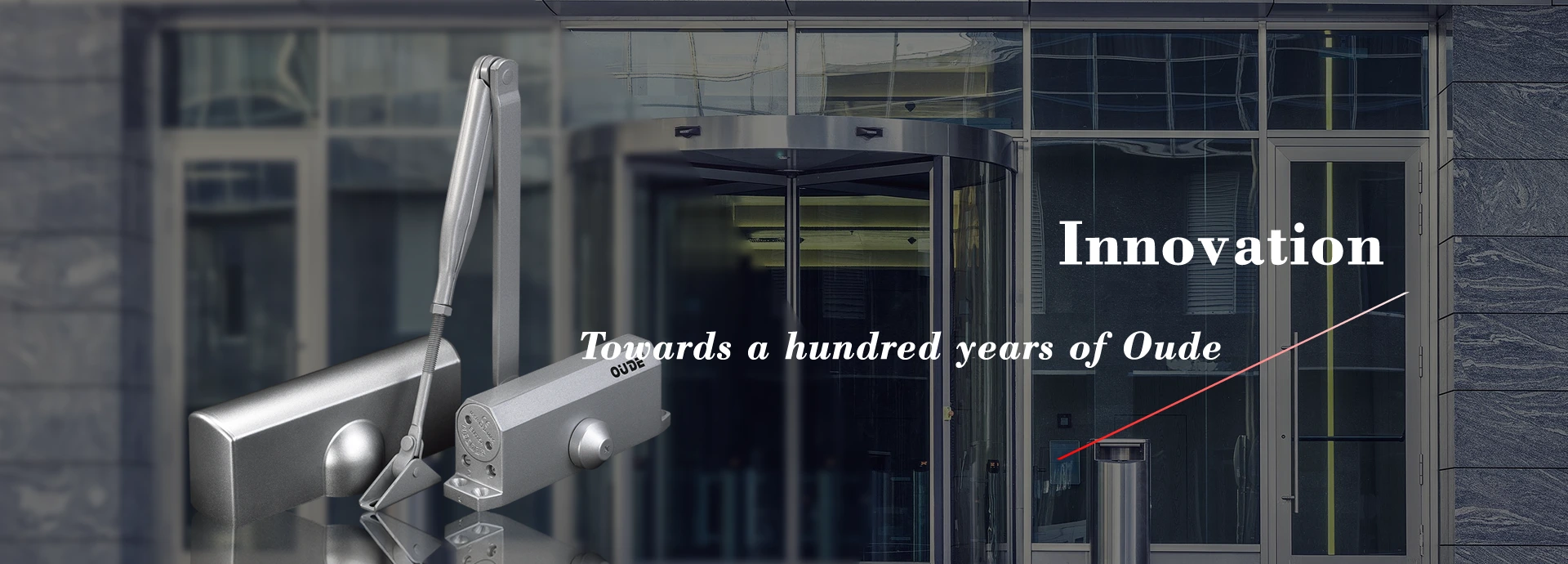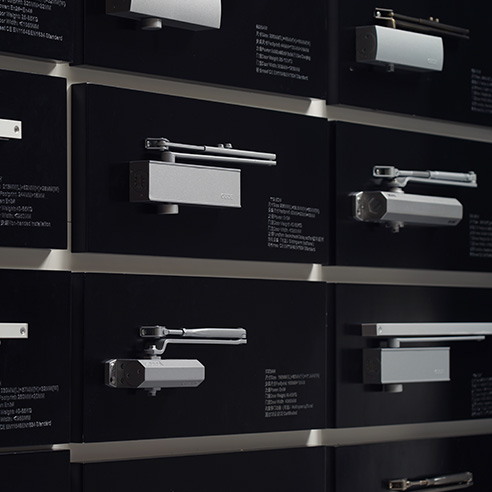
Doors are an essential feature in any building, serving as the first line of defense, a gateway for accessibility, and a crucial element of design.
Commercial settings often require doors to meet specific functional and aesthetic standards, depending on the type of building and its usage.
From solid wood doors to full glass doors, choosing the right type of door is just the first step. But the next question arises: Which doors require a commercial door closer?
In this article, we’ll explore the types of doors commonly found in commercial spaces and identify which ones benefit most from door closers.
| Type of Door | Recommended Door Closer |
| Wooden Doors | Light-to-medium-duty door closers for smooth operation and to prevent damage from slamming. |
| Steel Doors | Heavy-duty hydraulic door closers for precise control and to handle the weight of the door. |
| Aluminum Glass Doors | Concealed closers for maintaining sleek design; light-duty closers for interior applications. |
| Full Glass Doors | Lightweight, hidden closers or automatic door closers to ensure smooth operation. |
| Overhead Doors | Specialized automatic closers for smooth operation and reduced wear and tear. |
Wooden doors are versatile and timeless, often used in offices, schools, and other indoor spaces. They offer excellent sound insulation and a warm aesthetic.
Wooden doors can range from solid wood constructions to engineered wood options, making them adaptable to various budgets and design needs.
Wooden doors typically benefit from a door closer for wooden door applications. These closers are especially important for heavy doors to ensure smooth operation and to prevent damage from slamming.
Light-to-medium-duty door closers are usually sufficient, making them a cost-effective solution for these types of doors.
Steel doors are robust, durable, and ideal for securing entry points in commercial buildings. Frequently used in warehouses, factories, and other high-security areas, these doors provide excellent fire resistance and insulation.
Yes, steel doors often require a heavy-duty door closer for steel doors. Hydraulic door closers are particularly effective, as they can handle the weight and provide precise control.
For exterior steel doors, commercial closers for entry steel doors are essential to maintain security and energy efficiency.
Aluminum glass doors combine modern aesthetics with functionality. Found in storefronts, offices, and other commercial spaces, these doors balance transparency and durability.
The aluminum frame provides strength, while the glass enhances visual appeal and natural lighting.
Yes, concealed closers for glass doors or closers for aluminum glass doors are often used to maintain the sleek design of these doors.
Light-duty closers are sufficient for interior applications, while more robust options may be required for exterior doors.
Full glass doors offer unparalleled elegance and visibility, often used in retail stores and corporate lobbies.
Made entirely of tempered glass, these doors are both visually appealing and functional, although they are more fragile than other types.
Standard door closers are not ideal for full glass doors, as the material’s fragility requires careful handling.
Lightweight, hidden closers or automatic door closers for glass doors can be used, ensuring smooth operation without compromising the door’s integrity.
Overhead doors are commonly found in industrial settings like garages and warehouses. They are designed to handle frequent, heavy use and provide a secure barrier when closed.
Specialized automatic closers are often necessary for overhead doors. These closers ensure smooth operation and reduce wear and tear, making them indispensable in high-traffic, industrial environments.
Selecting the right door closer requires careful consideration of various factors to ensure functionality, safety, and aesthetic appeal.

Seeking Dependable Door Closers for Your Commercial Property?
Here’s a breakdown of key aspects to guide your choice:
The type of door—whether it’s a wooden door, steel door, full glass door, or aluminum glass door—affects the choice of door closer.
For instance, concealed closers for glass doors maintain a sleek appearance, while heavy-duty door closers for steel doors offer durability in high-traffic or secure areas.
Understanding the purpose of the door, such as fire safety, privacy, or security, is equally important.
Closers are designed to handle specific weight ranges. Using an undersized closer for a heavy door, like a steel entryway, can lead to premature wear.
Likewise, an oversized closer for a lightweight door may result in unnecessary force, making the door difficult to use.
Doors in high-traffic areas, such as office entrances, require robust closers that can withstand constant operation.
Automatic door closers or hydraulic models are often ideal in these scenarios to ensure durability and smooth performance.
For modern spaces, concealed or slim-profile closers enhance visual appeal, especially on aluminum glass doors or full glass doors.
Consider the overall design of the space to select a closer that blends seamlessly with the architecture.
In commercial settings, security is paramount. Closers for entry points should prevent doors from slamming or being forced open.
Options like delayed-action closers or models with backcheck functions add an extra layer of control, ensuring doors close securely and safely.
By evaluating these factors, you can choose a door closer that not only fits your requirements but also enhances the functionality and aesthetics of your space.
The closer should complement the door’s design while meeting its functional requirements. For instance, automatic door closers for glass doors are ideal for maintaining a modern, streamlined look.
Invest in closers that can handle the specific demands of the environment, whether it’s a high-traffic retail space or a quiet office.
Regular maintenance will extend the lifespan of the closer and ensure consistent performance.
Ensure that the closer is installed correctly and adjusted to suit the door’s weight and usage. Improper installation can lead to performance issues and potential damage to the door.
Understanding the needs of different types of doors is crucial in determining whether they require a door closer and which type is best suited for the job.
From solid wood doors to full glass doors, the choice of closer depends on factors like material, usage, and aesthetic preferences.
For doors requiring durability and functionality, options like heavy-duty door closers for steel doors or concealed closers for glass doors provide effective solutions.
By considering these factors, you can enhance the safety, efficiency, and longevity of your commercial doors.




